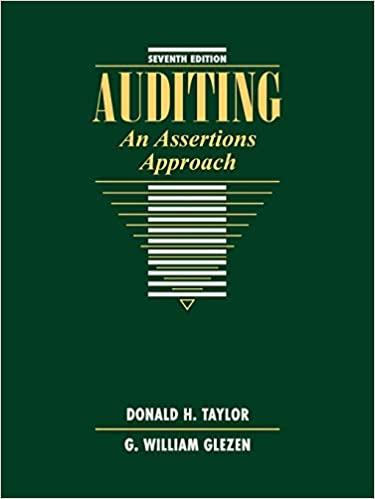Question
How are the following budgets calculated for the 1 st quarter? - Overhead budget - Cash receipts of sales revenue - Cash payments for material
How are the following budgets calculated for the 1st quarter?
- Overhead budget
- Cash receipts of sales revenue
- Cash payments for material purchases
- Overall cash budget
Master Budget Project
Congratulations! You have just been promoted to controller for a growing company that manufactures green products. It is October 1 and time for creation of the budget for the next year. The budget will be created in quarters using each month as a period of sales/production.
Your first task is to create the budget for the first quarter of 2016. This involves completing budgets for January, February, March and the first quarter in total for 2016. You seek out last years data, recent costing information and follow up on important assumptions.
The CFO wants to see the first quarter budget before you complete the rest of the year, as adjustments may be needed. You will need to create the following sub-budgets as part of the overall master budget.
1. Sales Budget for the 1st quarter
2. Production Budget for the 1st quarter
3. Materials Purchases Budget for the 1st quarter
4. Direct Labor Budget for the 1st quarter
5. Overhead Budget for the 1st quarter
6. Cash Receipts of Sales Revenue for the 1st quarter
7. Cash Payments for Material Purchases for the 1st quarter
8. Overall Cash Budget for the 1st quarter
9. Income Statement for the quarter ended March 31, 2016
10. Statement of Cash Flows for the quarter ended March 31, 2016
Several assumptions are needed to work into your models for computation. These are determined as follows and have been approved by the CFO. These are summarized on the following page.
This page illustrates all assumptions needed to create the master budget, income statement and statement of cash flows. These assumptions have been approved by the CFO. You will use them to create the master budget for January, February, March and in total for the first quarter.
| Jan | Feb | March | April | May | ||
| Unit sales | 21,000 | 22,000 | 23,000 | 24,000 | 20,000 | |
| sales price | $10 | |||||
| deseired ending inventory for finished goods | 20% of next month's sales in units | |||||
| desired ending inventory for material units | 10% of next month's materials needed for production | |||||
| cost of one lb of materials (1lb = 1 unit) | $0.25 | |||||
| units of direct materials to make one unit | 4 | |||||
| minutes of direct labor to make one unit | 12 | |||||
| direct labor costs per hour | $15 | |||||
| overhead costs percentage of direct labor | 150% | |||||
| minimum cash balance (assume you start with this) | $10,000 | |||||
| cash collections in month of sale | 65% | |||||
| cash collections in first month after sale | 25% | |||||
| cash collections in second month after sale | 10% | |||||
| cash payments in month of purchase | 60% | |||||
| cash payments in the first month after purchase | 40% | |||||
| selling costs per month (for cash budget) | $10,000 | |||||
| administrative costs per month (for cash budget) | $15,000 | |||||
| annual interest rate for letter of credit | 12% | |||||
| abbyak ubterest rate earned on excess cash | 4% | |||||
| sales revenue for november | $300,000 | |||||
| sales revenue for december | $250,000 | |||||
| material purchases for november | $35,000 | |||||
| material purchases for december | $26,000 | |||||
| depreciation expense for the quarter (operating expense) | $5,000 | |||||
| Income tax rate | 25% |
Step by Step Solution
There are 3 Steps involved in it
Step: 1

Get Instant Access to Expert-Tailored Solutions
See step-by-step solutions with expert insights and AI powered tools for academic success
Step: 2

Step: 3

Ace Your Homework with AI
Get the answers you need in no time with our AI-driven, step-by-step assistance
Get Started


